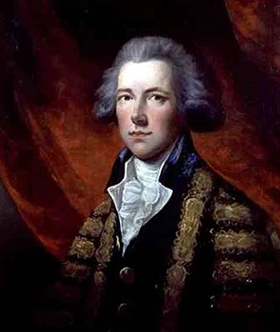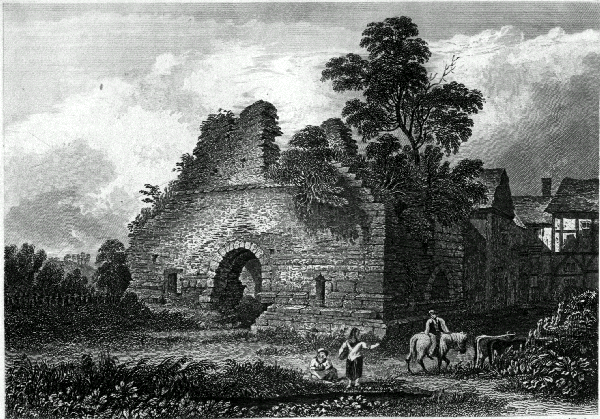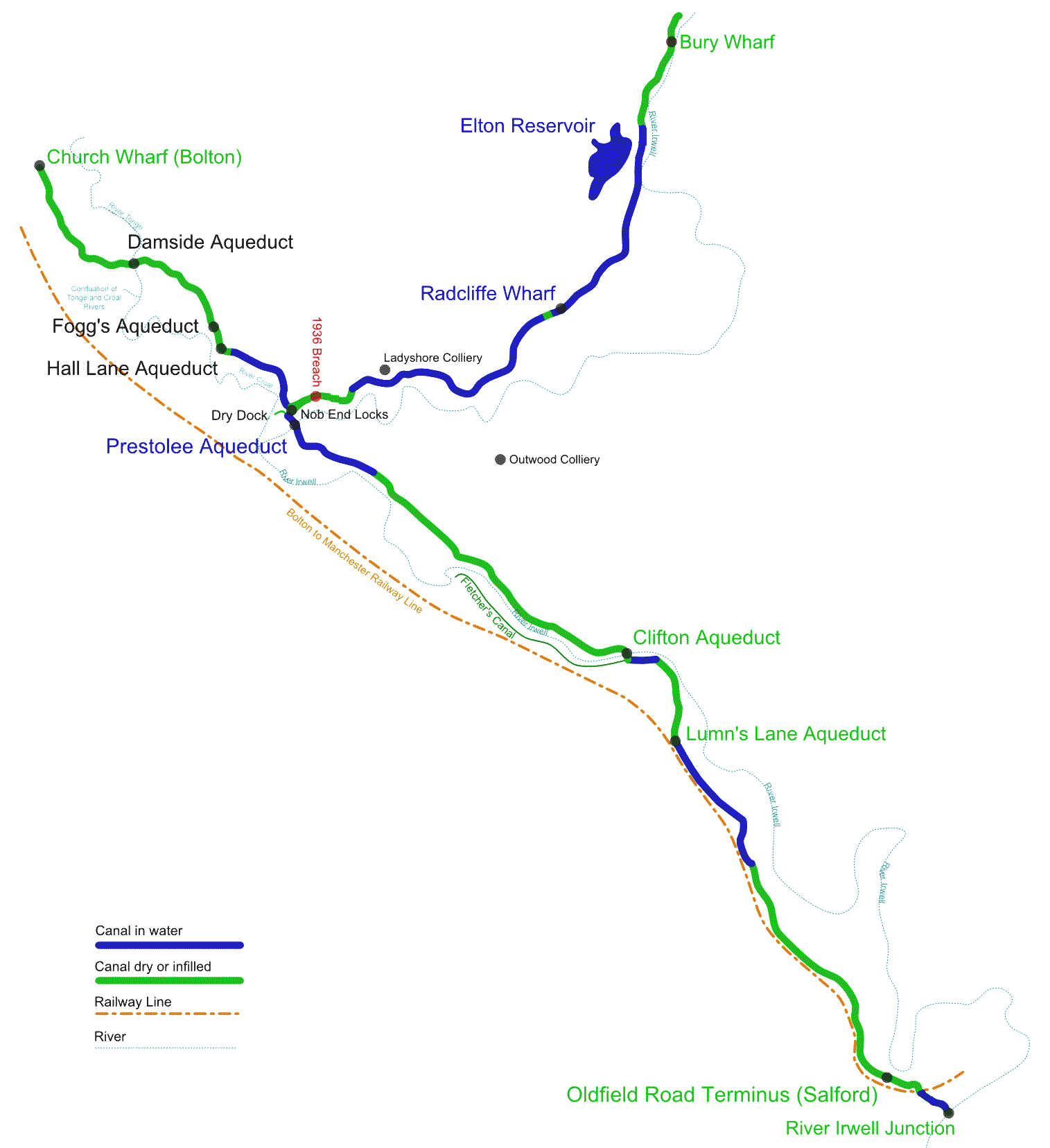|
Sir Robert Peel, 1st Baronet
Sir Robert Peel, 1st Baronet (25 April 1750 – 3 May 1830), was a British politician and industrialist and one of the early textile manufacturers of the Industrial Revolution The Industrial Revolution, sometimes divided into the First Industrial Revolution and Second Industrial Revolution, was a transitional period of the global economy toward more widespread, efficient and stable manufacturing processes, succee .... He was one of the ten known British millionaires in 1799. He was the father of Robert Peel, Sir Robert Peel, twice Prime Minister of the United Kingdom. Background Peel's father Parsley Peel, Robert "Parsley" Peel and grandfather William Peel(e) were yeomen. They were also engaged in the adult and infant textile industry, then organised on the basis of the domestic system (most of the work being undertaken in the home). Business career Like many others, Peel joined partnerships to raise the capital required to set up cotton mill, spinning mills. These we ... [...More Info...] [...Related Items...] OR: [Wikipedia] [Google] [Baidu] |
Baronet
A baronet ( or ; abbreviated Bart or Bt) or the female equivalent, a baronetess (, , or ; abbreviation Btss), is the holder of a baronetcy, a hereditary title awarded by the British Crown. The title of baronet is mentioned as early as the 14th century; however, in its current usage it was created by James VI and I, James I of England in 1611 as a means of raising funds for the crown. Baronets rank below barons, but seemingly above all grand cross, knights grand cross, knight commander, knights commander and knight bachelor, knights bachelor of the British order of chivalry, chivalric orders, that are in turn below in chivalric United Kingdom order of precedence, precedence than the most senior British chivalric orders of the order of the Garter, Garter and the order of the Thistle, Thistle. Like all British knights, baronets are addressed as "Sir" and baronetesses as "Dame". They are conventionally seen to belong to the lesser nobility, although William Thoms in 1844 wrote tha ... [...More Info...] [...Related Items...] OR: [Wikipedia] [Google] [Baidu] |
Domestic System
The putting-out system is a means of subcontracting work, like a tailor. Historically, it was also known as the workshop system and the domestic system. In putting-out, work is contracted by a central agent to subcontractors who complete the project via remote work. It was used in the English and American textile industries, in shoemaking, lock-making trades, and making parts for small firearms from the Industrial Revolution until the mid-19th century. After the invention of the sewing machine in 1846, the system lingered on for the making of ready-made men's clothing. The domestic system was suited to pre-urban times because workers did not have to travel from home to work, which was quite unfeasible due to the state of roads and footpaths, and members of the household spent many hours in farm or household tasks. Early factory owners sometimes had to build dormitories to house workers, especially girls and women. Putting-out workers had some flexibility to balance farm and ho ... [...More Info...] [...Related Items...] OR: [Wikipedia] [Google] [Baidu] |
Robert Owen
Robert Owen (; 14 May 1771 – 17 November 1858) was a Welsh textile manufacturer, philanthropist, political philosopher and social reformer, and a founder of utopian socialism and the cooperative movement, co-operative movement. He strove to improve factory working conditions, promoted experimental socialistic communities, sought a more collective approach to child-rearing, and 'believed in lifelong education, establishing an Institute for the Formation of Character and School for Children that focused less on job skills than on becoming a better person'. He gained wealth in the early 1800s from a textile mill at New Lanark, Scotland. Having trained as a draper in Stamford, Lincolnshire he worked in London before relocating at age 18 to Manchester and textile manufacturing. In 1824, he moved to America and put most of his fortune in an experimental socialistic community at New Harmony, Indiana, as a preliminary for his utopian society. It lasted about two years. Other Owenite c ... [...More Info...] [...Related Items...] OR: [Wikipedia] [Google] [Baidu] |
Health And Morals Of Apprentices Act
The Health and Morals of Apprentices Act 1802 ( 42 Geo. 3. c. 73), sometimes known as the Factory Act 1802, was an Act of the Parliament of the United Kingdom designed to improve conditions for apprentices working in cotton mills. The Act was introduced by Sir Robert Peel, who had become concerned in the issue after a 1784 outbreak of a "malignant fever" at one of his cotton mills, which he later blamed on 'gross mismanagement' by his subordinates. The Act required that cotton mills and factories be properly ventilated and basic requirements on cleanliness be met. Apprentices in these premises were to be given a basic education and to attend a religious service at least once a month. They were to be provided with clothing and their working hours were limited to no more than twelve hours a day (excluding meal breaks); they were not to work at night. The act was not effectively enforced, and did not address the working conditions of 'free children' (children working in mills w ... [...More Info...] [...Related Items...] OR: [Wikipedia] [Google] [Baidu] |
Pocket Borough
A rotten or pocket borough, also known as a nomination borough or proprietorial borough, was a parliamentary borough or constituency in England, Great Britain, or the United Kingdom before the Reform Act of 1832, which had a very small electorate and could be used by a patron to gain unrepresentative influence within the House of Commons. The same terms were used for similar boroughs represented in the 18th-century Parliament of Ireland. The Reform Act abolished the majority of these rotten and pocket boroughs. Background A parliamentary borough was a town or former town that had been incorporated under a royal charter, giving it the right to send two elected burgesses as Members of Parliament (MPs) to the House of Commons. It was not unusual for the physical boundary of the settlement to change as the town developed or contracted over time, for example due to changes in its trade and industry, so that the boundaries of the parliamentary borough and of the physical settlemen ... [...More Info...] [...Related Items...] OR: [Wikipedia] [Google] [Baidu] |
William Pitt The Younger
William Pitt (28 May 1759 – 23 January 1806) was a British statesman who served as the last prime minister of Kingdom of Great Britain, Great Britain from 1783 until the Acts of Union 1800, and then first Prime Minister of the United Kingdom, prime minister of the United Kingdom from January 1801. He left office in March 1801, but served as prime minister again from 1804 until his death in 1806. He was also Chancellor of the Exchequer for all of his time as prime minister. He is known as "Pitt the Younger" to distinguish him from his father, William Pitt the Elder, who had also previously served as prime minister. Pitt's prime ministerial tenure, which came during the reign of King George III, was dominated by major political events in Europe, including the French Revolution and the Napoleonic Wars. Pitt, although often referred to as a Tory (British political party), Tory, or "new Tory", called himself an "independent Whig (British political party), Whig" and was generally oppo ... [...More Info...] [...Related Items...] OR: [Wikipedia] [Google] [Baidu] |
Tory
A Tory () is an individual who supports a political philosophy known as Toryism, based on a British version of traditionalist conservatism which upholds the established social order as it has evolved through the history of Great Britain. The Tory ethos has been summed up with the phrase "God, King (or Queen), and Country". Tories are Monarchism, monarchists, were historically of a high church Church of England, Anglican religious heritage, and were opposed to the liberalism of the Whigs (British political party), Whig party. The philosophy originates from the Cavaliers, a Royalism, royalist faction which supported the House of Stuart during the Wars of the Three Kingdoms. The Tories (British political party), Tories, a British political party which emerged during the late 17th century, was a reaction to the Whig-controlled Parliaments that succeeded the Cavalier Parliament. As a political term, ''Tory'' (a word of Irish origin) was first used during the Exclusion Crisis of 1678� ... [...More Info...] [...Related Items...] OR: [Wikipedia] [Google] [Baidu] |
Radcliffe, Greater Manchester
Radcliffe is a market town in the Metropolitan Borough of Bury, Greater Manchester, England. It lies in the Irwell Valley northwest of Manchester and southwest of Bury, Greater Manchester, Bury and is contiguous with Whitefield, Greater Manchester, Whitefield to the south. The disused Manchester Bolton & Bury Canal bisects the town. Evidence of Mesolithic, Roman Britain, Roman and England in the High Middle Ages#Normans, Norman activity has been found in Radcliffe and its surroundings. A Roman road passes through the area, along the border between Radcliffe and Bury. Radcliffe appears in an entry of the Domesday Book as "Radeclive" and in the High Middle Ages formed a small parish and township centred on the Parish Church of St Mary, Radcliffe, Church of St Mary and the manorial Radcliffe Tower, both of which are Grade I listed buildings in Greater Manchester, Grade I listed buildings. Plentiful Coal mining in the United Kingdom, coal in the area facilitated the Industrial R ... [...More Info...] [...Related Items...] OR: [Wikipedia] [Google] [Baidu] |
Manchester Bolton & Bury Canal
The Manchester Bolton & Bury Canal is a disused canal in Greater Manchester, England, built to link Bolton and Bury, Greater Manchester, Bury with Manchester. The canal, when fully opened, was long. It was accessed via a junction with the River Irwell in Salford, Greater Manchester, Salford. Seventeen lock (water transport), locks were required to climb to the Route summit, summit as it passed through Pendleton, Greater Manchester, Pendleton, heading northwest to Prestolee before it split northwest to Bolton and northeast to Bury. Between Bolton and Bury the canal was level and required no locks. Six Navigable aqueduct, aqueducts were built to allow the canal to cross the rivers Irwell and River Tonge, Tonge and several minor roads. The canal was commissioned in 1791 by local landowners and businessmen and built between 1791 and 1808, during the history of the British canal system#The Golden Age, Golden Age of canal building, at a cost of pound sterling, £127,700 (£ today). ... [...More Info...] [...Related Items...] OR: [Wikipedia] [Google] [Baidu] |
Chamber Hall
Chamber or The Chamber may refer to: Organizations and government *Chamber of commerce, a form of business network *Legislative chamber, a deliberative assembly within a legislature *Debate chamber, a room for people to discuss and debate Arts and entertainment *Chamber (character), in Marvel comics * ''The Chamber'' (game show), an American TV show * ''The Chamber'' (novel), by John Grisham, 1994 ** ''The Chamber'' (1996 film), based on the novel * ''The Chamber'' (2016 film), a survival film * , a German musical ensemble Business * Barristers' chamber - office used by Lawyers Other uses * Chamber (firearms), part of a weapon * Combustion chamber, part of an engine in which fuel is burned * Environmental chamber, used in testing environmental conditions * Execution chamber, where capital punishment is carried out * Gas chamber, apparatus for killing humans or animals * Chambar, or Chamber, a town in Pakistan See also * Chambers (other) * Chamber music (disam ... [...More Info...] [...Related Items...] OR: [Wikipedia] [Google] [Baidu] |
Bury, Greater Manchester
Bury (, ) is a market town on the River Irwell in the Metropolitan Borough of Bury, Greater Manchester, England. which had a population of 81,101 in 2021 while the wider borough had a population of 193,846. The town was originally part of the county of Lancashire but has been in the metropolitan county of Greater Manchester since 1974. Bury emerged in the Industrial Revolution as a mill town manufacturing textile manufacture during the Industrial Revolution, textiles. The town is known for the open-air Bury Market and black pudding, the traditional local dish. Sir Robert Peel was born in the town. Peel was a Prime Minister of the United Kingdom who founded the Metropolitan Police and the Conservative Party (UK), Conservative Party. A Peel Memorial, Bury, memorial and Peel Monument, monument for Peel, the former stands outside Bury Parish church and the latter overlooks the borough on Ramsbottom, Holcombe Hill. The town is east of Bolton, south-west of Rochdale and north-wes ... [...More Info...] [...Related Items...] OR: [Wikipedia] [Google] [Baidu] |








